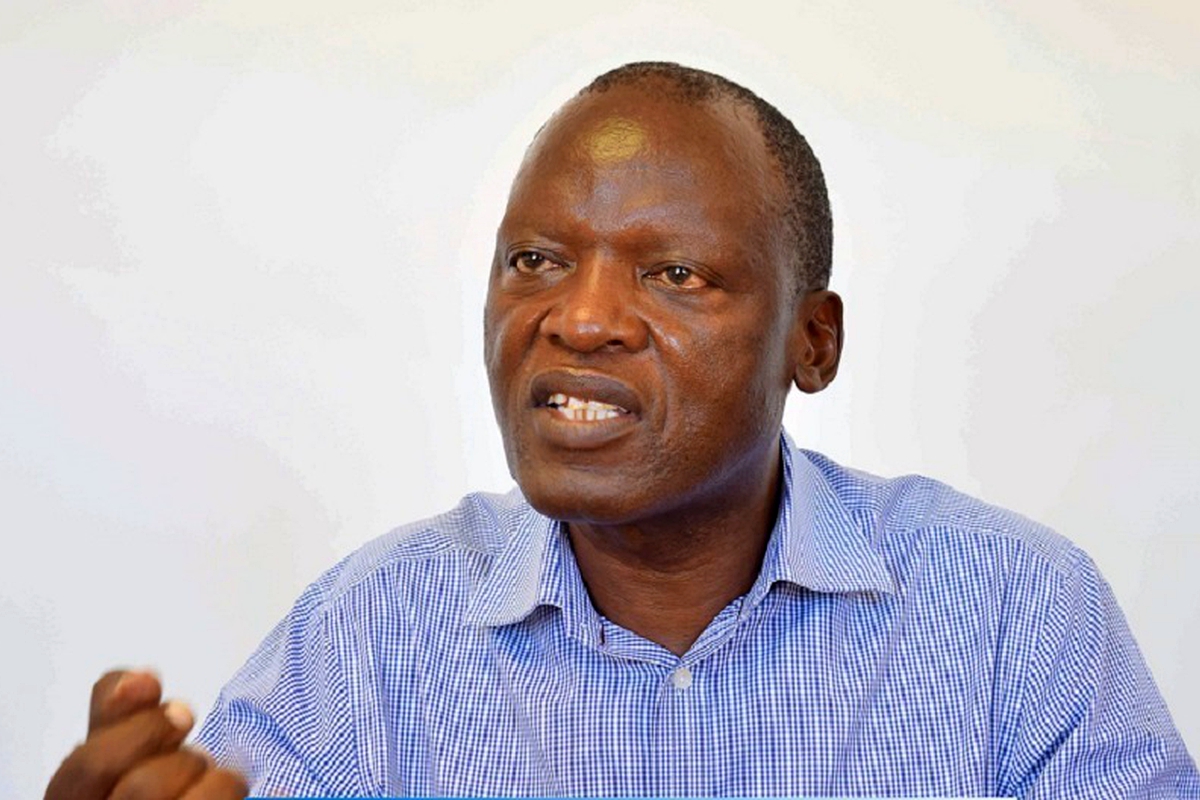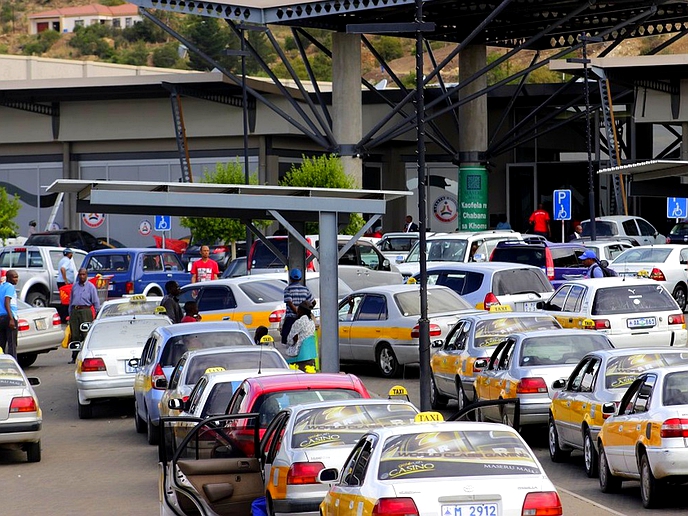TEBOHO Kobeli, founder and Managing Director of locally owned clothing and textile factory, Afri-Expo that specialises in the manufacturing of Jeanswear says numbers in business speak louder.
business
March 22, 2022
STAFF REPORTER
4 min read
Numbers speak louder in business - Kobeli

MD of Afri-Expo, Teboho Kobeli
Story highlights
“If the population is growing, it’s a sure sign that there are many opportunities for business to thrive,” Kobeli says.
The 58-year-old entrepreneur employs over 500 workers in his firm located at the Tikoe Industrial Estate, where 90 percent are women.
His major market is the United States and South Africa with a population of more than 60 million people, where he sells jeans to chain stores of the two major markets.
The chain stores sell their products to most countries in the Southern Africa Development Community (SADC) region, including Namibia, Botswana, Swaziland and Eswatini.
“These jeans are also sold back in Lesotho through big South Africa’s chain stores,” Mr Kobeli says.
“Having a market in South Africa is a good opportunity to boost Lesotho’s ailing economy. I am fully booked this year and beyond.”
A week ago local industrialist, Sam Matekane donated uniforms to the Lesotho Mounted Police Services (LMPS) and the Lesotho Defence Force (LDF) manufactured by Afri-Expo, another feather in the cap for the local manufacturer.
However, Mr Kobeli says manufacturing both police and army uniforms was nothing but a drop of oil in the ocean for his factory adding he would have preferred to extend the tender to Basotho women who were trained in making uniforms.
“But manufacturing uniform is not as simple as one would think,” he says. “It needs special skill of someone familiar with how the sector operates. For example, the kind of threads needed to make uniform together with the zips.”
The South African market, he says is more lucrative and sustainable, adding it is pointless that Basotho are stuck in poverty and jobless.
“There are more jobs in Lesotho than there are jobless people,” he says.
Mr Kobeli entered the textile industry, the second largest employer after government, on noticing it was run by foreign investors, especially the Chinese and Taiwanese.
“That’s when the seeds of this business were planted in me,” he notes. “There was no time to waste but to roll back my sleeves and get my hands dirty.”
Kobeli says there is nothing fundamental the Chinese and Taiwanese investors have done for Lesotho, arguing there is no guarantee they will operate in the country permanently.
“The foreign investors have been coming and going,” he says.
“Every time they have accumulated enough money, they go to their respective countries leaving Basotho jobless. The logic is to make money and go back home. It’s a time ticking bomb.”
Kobeli says he mobilised a number of people to pool their resources together when he started the business but he warned them of the potential dangers associated with the manufacturing business.
“They did not want to taste the poison,” he recalls.
With an intrinsic passion to help the jobless Basotho, Mr Kobeli says the bulk of orders by South Africa’s security companies and retail stores is testimony that the neighbouring South Africa is a major market.
“Afri-Expo never retrenched a single employee at the height of the biting COVID-19 pandemic when most factories shut down, resulting in more than 10 000 people losing their jobs,” he says.
Instead, he says the pandemic was a shot in the arm with massive orders from South Africa to manufacture the Personal Protective Equipment (PPE).
At the time, Afri-Expo did not retrench employees but had two shifts so that people could not be in one place in large numbers to observe social distancing.
Mr Kobeli is worried foreign investors are leaving following the COVID-19 pandemic and insists they cannot help the industry but want to leave now because they have filled their pockets.
Enjoy our daily newsletter from today
Access exclusive newsletters, along with previews of new media releases.
He further says another issue that might pressure Asian investors to leave Lesotho is trade unions that demand better living wages for the workers.
Although Lesotho’s textiles and apparels industry sells mainly to the US through African Growth and Opportunities Act (AGOA) - a trade preference regime between the US and selected African countries that include Lesotho - Mr Kobeli says his secured market is SA.
Lesotho, he says is best positioned to have a meaningful share of the business opportunities accruing from South Africa.
With skills in the textile and clothing industry, he says he is willing to partner with the Lesotho National Development Corporation (LNDC) to localise the industry.
The Mokhotlong-born entrepreneur notes that he is always looking for business opportunities that can help drive and stimulate the local economy.
“Diversification is a way to go as long as there’s demand in the market,” he says, adding that he has assisted several Basotho businesses with numerous business opportunities around the world, especially China.
“Many of these people are doing well in business and have different entrepreneurial aptitude with more business ventures to explore. I wish to see Basotho grow from strength to strength in business.”
Back in 2005, Mr Kobeli opened a global branch of Kobeli Business Services in China, Global Sourcing, to facilitate business opportunities for Lesotho entrepreneurs.
“Many products are from China,” he states.
After attending the Dubai Expo 2021, the astute business man says he noticed a plethora of job opportunities existed for Basotho, where innovation, technology, art, and culture offer great experience.
"There are a lot of untapped opportunities in Lesotho," Mr Kobeli adds.
Tailored for you






